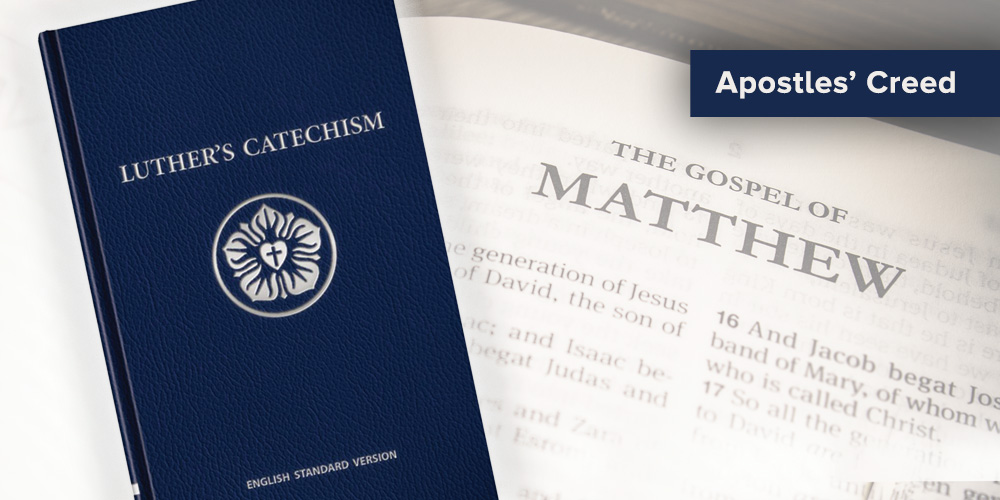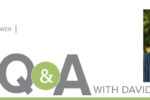 |
Imagine you are one of three thousand in Jerusalem at Pentecost who repent, are baptized, and are gathered by the Spirit into the Christian church—the messianic kingdom of Jesus.
An early training manual
You return home to Syria. More souls in your synagogue discover that the One they are waiting for had finally arrived. The writings of Moses and all the prophets point to Jesus! You are the first generation of the Christian church. Apostles visit your city proclaiming Jesus’ life and work. You hear it straight from these eyewitnesses.
Then persecution breaks out. Some apostles are executed. Others travel elsewhere. Yet, a blessing emerges: Apostolic visits give way to apostolic Scripture.
One day your synagogue receives a scroll of the gospel according to Matthew. Your Jewish community loves Matthew with all its Tanakh (Old Testament) quotations. It almost reads like a sequel to the books of Moses (Torah) written 1,500 years earlier. And like the Torah, Matthew’s gospel serves well as a training manual for a believer’s life in the Messiah’s kingdom.
It still does today in this “one holy Christian and apostolic Church.”
Over the next six months, this series will compare unique accounts from Matthew with the six chief parts of a training manual written 1,500 years later—Martin Luther’s Small Catechism. We’ll see that a 1st-century Jewish Christian reading Matthew would learn the same truths for kingdom living as a 21st-century Christian reading the catechism.
Matthew and the Apostles’ Creed
Devout Jews treasured the gospel covenants God had established with renowned Jewish ancestors Abraham (Genesis 12:2,3) and David (1 Chronicles 17:10). The first sentence of the New Testament bridges them to Jesus: meaningless trivia to ignorant Gentiles but a thrilling revelation to Jews.
Matthew chapter 1 groups Jesus’ human ancestors into three sets of 14 names to aid memorization. Matthew clearly skipped some names that didn’t fit the pattern. It’s surprising, then, to read whom he did include in the Messiah’s genealogy: women, foreigners, and even a former prostitute. While Matthew mentions great King David three times, he also alludes to David’s shameful crime of murdering Uriah. The apostle highlights marginal characters and embarrassing episodes rather than avoiding them. What a comfort! “Jesus is not ashamed to call them brothers and sisters” (Hebrews 2:11).
Only Matthew’s gospel records the angel’s visit to Joseph, when he learned that Mary was carrying more than the son of Abraham and David. She bore the very Son of God. Joseph took in the mind-blowing truth that the unborn boy was Immanuel, “God with us.”
God, not Joseph, gave his Son the personal name Jesus, which means “the LORD saves.” His name was his mission and our reminder that God, not us, is the agent of salvation. “He will save his people from their sins” (Matthew 1:21).
We are his people. Take that in. “All this he did that I should be his own, and live under him in his kingdom.”
Whether the second generation of Christians or the hundredth, believers confess the identity of Jesus revealed in Matthew, “I believe that Jesus Christ, true God, begotten of the Father from eternity, and also true man, born of the virgin Mary, is my Lord.”
This is the first article in a six-part series about catechism truths found in Matthew’s gospel.
Learn more about the Apostles’ Creed from Luther’s Small Catechism at forwardinchrist.net/catechism.
Author: James Borgwardt
Volume 110, Number 7
Issue: July 2023
- Catechism truths from Matthew: Baptism
- Catechism truths from Matthew: The Lord’s Supper
- Catechism truths from Matthew: Apostles’ Creed
- Catechism truths from Matthew: The keys and confession
- Catechism truths from Matthew: The Lord’s Prayer







